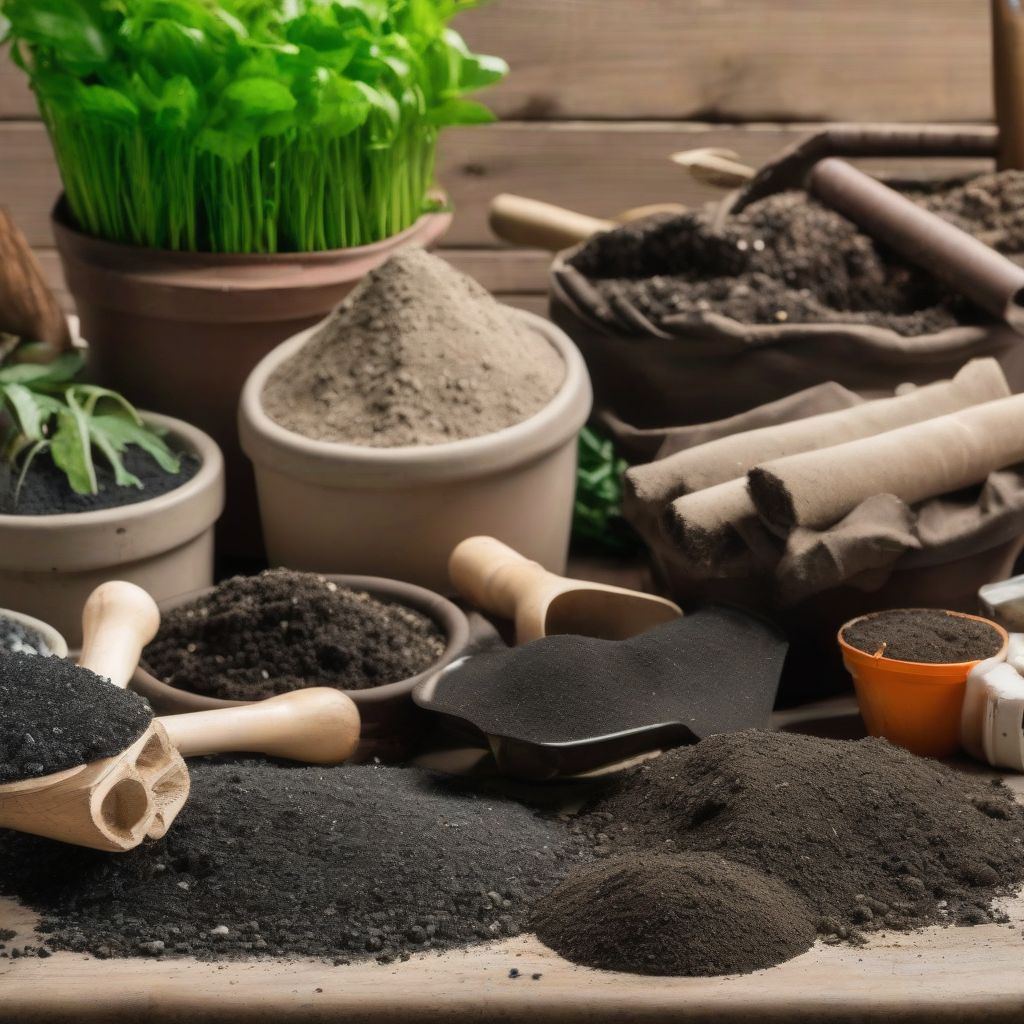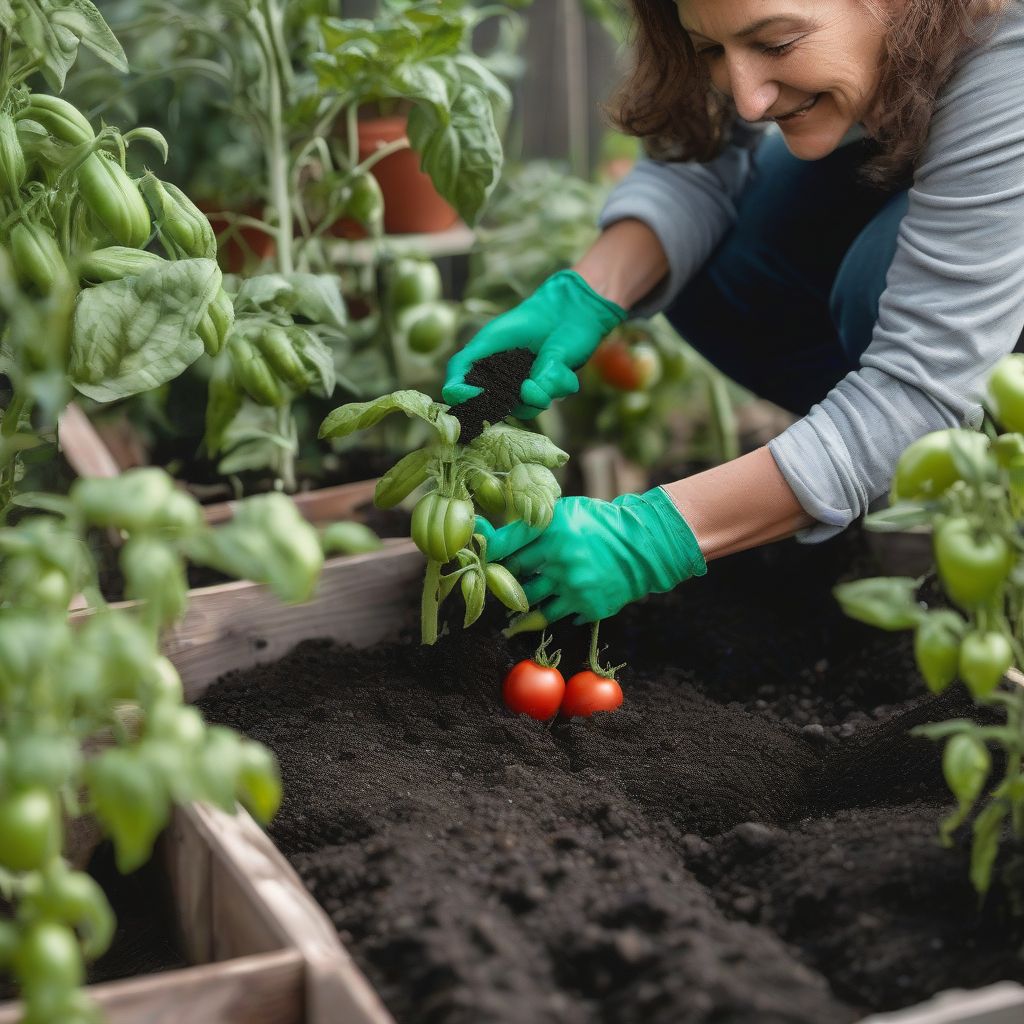Have you ever dreamt of having a thriving garden bursting with vibrant flowers and plump vegetables? It’s a dream shared by many, a vision of nature’s bounty right at our fingertips. But just like our bodies need the right nutrients to thrive, so too do our plants. And that, my friends, is where the magic of organic fertilizer comes in!
For years, I’ve helped people achieve their health goals through nourishing food choices, and I believe the same principles apply to our gardens. Just like we avoid processed foods for ourselves, we can nourish our plants with natural, organic fertilizers that enhance the soil and promote healthy growth.
This guide will delve into the wonderful world of organic fertilizing. We’ll explore the benefits, different types, and simple techniques to help you cultivate a garden that’s not only beautiful but bursting with life. Let’s get started!
Why Choose Organic Fertilizers?
Choosing organic fertilizers isn’t just a trend; it’s a conscious decision to support the long-term health of your garden and the environment. Here’s why:
1. Nourishing the Soil, Not Just the Plant
Organic fertilizers act like a nutritious meal for your soil, feeding the beneficial microbes that are essential for plant health. They improve soil structure, making it easier for roots to access water and nutrients, leading to stronger, more resilient plants.
2. Eco-Friendly and Sustainable
Unlike synthetic fertilizers that can contribute to water pollution and harm beneficial insects, organic fertilizers are environmentally friendly. They decompose slowly, releasing nutrients gradually and reducing the risk of leaching into waterways.
3. Safe for You, Your Family, and Pets
With organic fertilizers, you can enjoy peace of mind knowing that you’re not exposing your loved ones or pets to harmful chemicals. This is particularly important if you have young children or pets who love to play in the garden.
 Organic Fertilizer Options
Organic Fertilizer Options
Exploring Your Organic Fertilizer Options
Just like we have a variety of food choices, the world of organic fertilizers offers a diverse menu for your garden:
1. Compost: The Black Gold of Gardening
Compost is the gold standard of organic fertilizers, often referred to as “black gold” for its remarkable benefits. This nutrient-rich mixture is created by decomposing kitchen scraps, yard waste, and other organic materials.
Expert Tip: Creating your own compost is easier than you think! Start a compost bin or pile in your backyard and watch as your kitchen scraps transform into garden gold.
2. Manure: A Nutrient-Rich Boost
Manure from herbivorous animals like cows, horses, or chickens is an excellent source of nitrogen, phosphorus, and potassium – the essential nutrients plants need to thrive. Be sure to use well-composted manure to avoid burning your plants.
Did You Know? Using aged manure helps prevent the spread of harmful pathogens to your plants.
3. Blood Meal: A Nitrogen Powerhouse
Don’t let the name scare you! Blood meal is a dried, powdered form of animal blood, and it’s a fantastic source of nitrogen, promoting lush, green growth in leafy vegetables and other nitrogen-loving plants.
Caution: While blood meal is a great fertilizer, its strong odor can attract unwanted critters.
4. Bone Meal: For Strong Roots and Blooms
Bone meal, as the name suggests, is made from finely ground animal bones, making it a rich source of phosphorus. This essential nutrient promotes strong root development and abundant flowering, making it ideal for bulbs, roses, and fruiting plants.
Expert Insight: “For vibrant blooms, mix bone meal into the soil before planting bulbs or roses.” – Jane Brown, Master Gardener
5. Fish Emulsion: A Quick Nutrient Boost
Fish emulsion, a liquid fertilizer made from fish processing byproducts, is like a shot of espresso for your plants. It’s a fast-acting source of nitrogen and other essential nutrients, giving your garden a quick boost.
Tip: Dilute fish emulsion with water before applying to avoid overwhelming plants with its strong odor.
 Applying Organic Fertilizer to Plants
Applying Organic Fertilizer to Plants
Applying Organic Fertilizers: Less is More
When it comes to organic fertilizing, remember this golden rule: less is more. Here’s a simple guide:
1. Timing is Everything
The best time to fertilize is during your plants’ active growing season – typically spring and fall. However, different plants have different needs, so always refer to specific plant care instructions.
2. Application Methods
- Topdressing: Sprinkle granular fertilizers like compost or manure around the base of your plants, gently working them into the top layer of soil.
- Side Dressing: For a mid-season boost, dig a shallow trench around the drip line of your plants and apply fertilizer, covering it with soil.
- Liquid Feeding: Dilute liquid fertilizers like fish emulsion or compost tea according to package instructions and apply to the soil around your plants.
3. Observe and Adjust
Just like we listen to our bodies, it’s crucial to observe your plants’ response to fertilizer. Yellowing leaves, stunted growth, or leaf burn can indicate over-fertilizing, while healthy green growth and abundant blooms are signs of happy plants.
[amazon bestseller=”organic fertilizer”]
Conclusion: Cultivating a Thriving Garden with Organic Care
Choosing to fertilize your plants organically is a decision to nurture not only your garden but also the environment. By embracing these natural methods, you’re providing your plants with the essential nutrients they need to thrive while promoting a healthy ecosystem.
Remember, a vibrant garden starts with healthy soil. So, embrace the power of organic fertilizers, experiment with different options, and watch your garden flourish with life!
Now, I’d love to hear from you! What are your favorite organic fertilizing techniques? Share your tips and tricks in the comments below, and let’s cultivate a greener world together.
